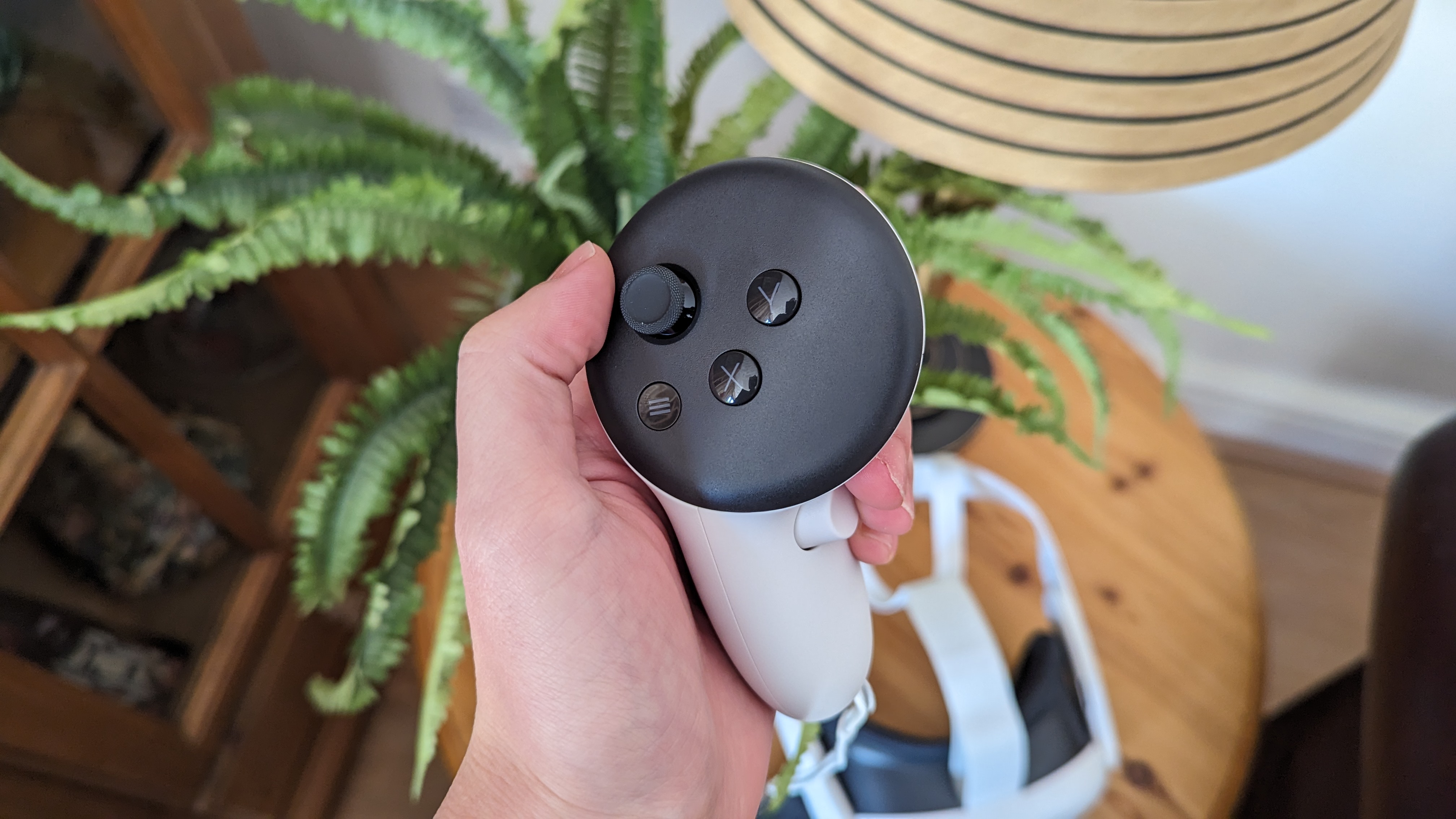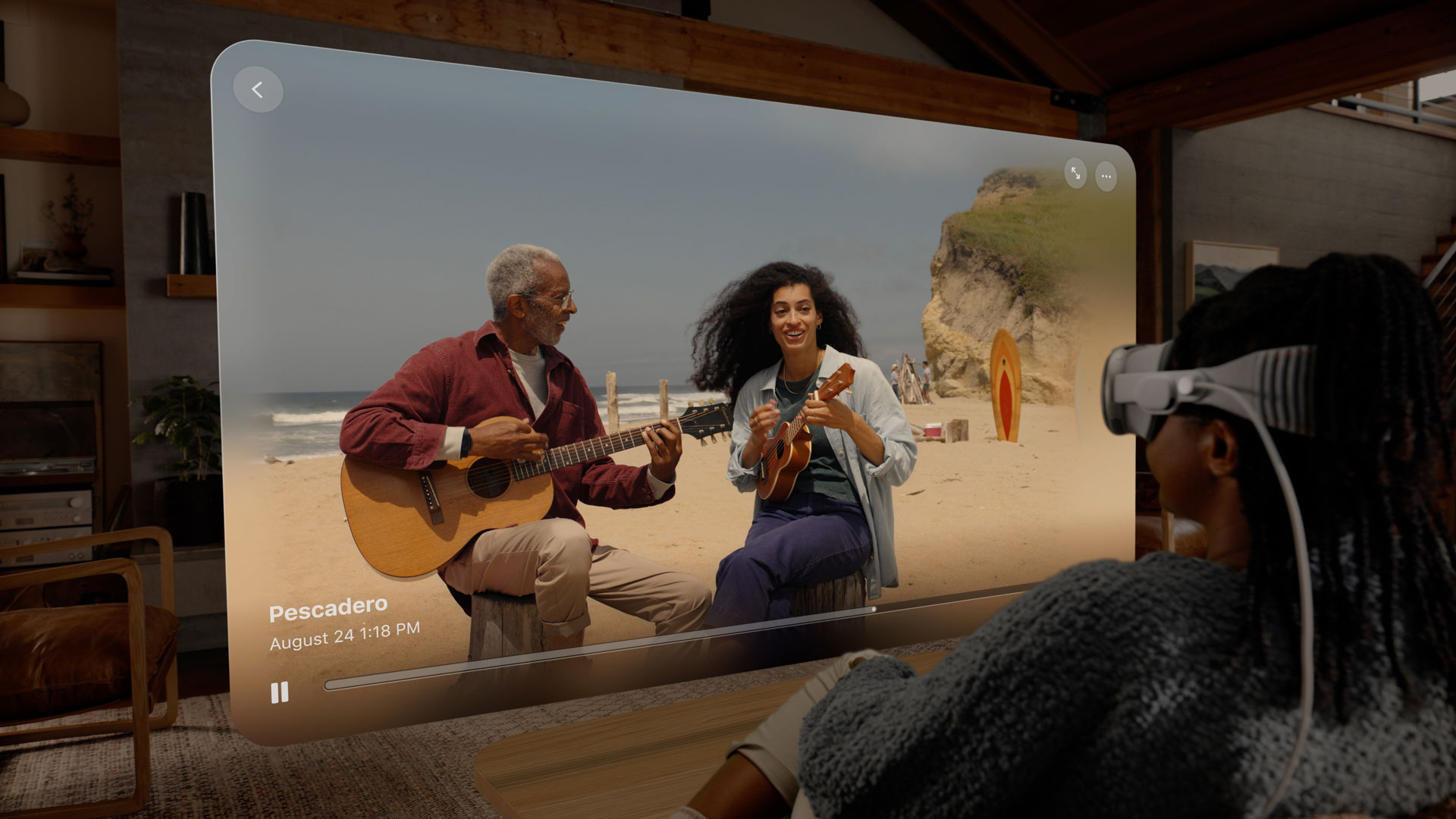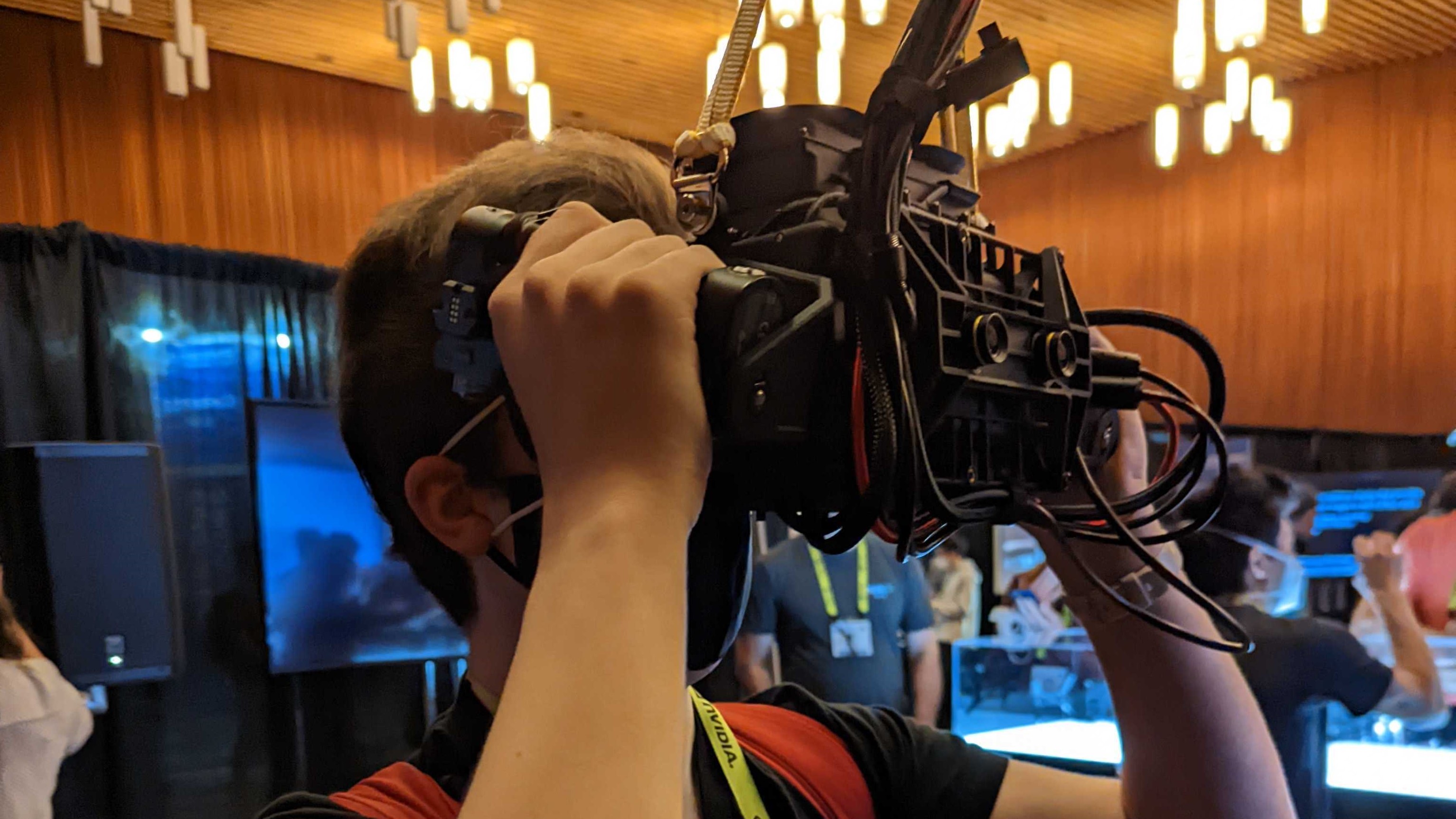Mark Zuckerberg thinks the Meta Quest 3 is better than Vision Pro – and he’s got a point
Mark Zuckerberg has tried the Apple Vision Pro, and he wants you to know that the Meta Quest 3 is “the better product, period”. This is unsurprising given that his company makes the Quest 3, but having gone through all of his arguments he does have a point – in many respects, the Quest 3 is better than Apple’s high-end model.
In his video posted to Instagram, Zuckerberg starts by highlighting the fact that the Quest 3 offers a more impressive interactive software library than the Vision Pro, and right now that is definitely the case. Yes, the Vision Pro has Fruit Ninja, some other spatial apps (as Apple calls them), and plenty of ported-over iPad apps, but nothing on the Vision Pro comes close to matching the quality or immersion levels of Asgard’s Wrath 2, Walkabout Mini Golf, Resident Evil 4 VR, The Light Brigade, or any of the many amazing Quest 3 VR games.
It also lacks fitness apps. I’m currently testing some for a VR fitness experiment (look out for the results in March) and I’ve fallen in love with working out with my Quest 3 in apps like Supernatural. The Vision Pro not only doesn’t offer these kinds of experiences, but its design isn’t suited to them either – the hanging cable could get in the way, and the fabric facial interface would get drenched in sweat; a silicone facial interface is a must-have based on my experience.
The only software area where the Vision Pro takes the lead is video. The Quest platform is badly lacking when it comes to offering the best streaming services in VR – only having YouTube and Xbox Cloud Gaming – and it’s unclear if or when this will change. I asked Meta if it has plans to bring more streaming services to Quest, and I was told by a representative that it has “no additional information to share at this time.”
Zuckerberg also highlights some design issues. The Vision Pro is heavier than the Quest 3, and if you use the cool-looking Solo Knit Band you won’t experience the best comfort or support – instead most Vision Pro testers recommend you use the Dual-Loop band which more closely matches the design of the Quest 3’s default band as it has over the head support.
You also can’t wear glasses with the Vision Pro, instead you need to buy expensive inserts. On Quest 3 you can just extend the headset away from your face using a slider on the facial interface and make room for your specs with no problem.
Then there’s the lack of controllers. On the Vision Pro unless you’re playing a game that supports a controller you have to rely solely on hand tracking. I haven’t used the Vision Pro but every account I’ve read or heard – including Zuckerberg’s – has made it clear that hand-tracking isn’t any more reliable on the Vision Pro than it is on Quest; with the general sentiment being that 95% of the time it works seamlessly which is exactly my experience on the Quest 3.
Controllers are less immersive but do help to improve precision – making activities like VR typing a lot more reliable without needing a real keyboard. What’s more, considering most VR and MR software out there right now is designed for controllers software developers have told us it would be a lot easier to port their creations to the Vision Pro if it had handsets.
Lastly, there’s the value. Every Meta Quest 3 and Apple Vision Pro comparison will bring up price so we won’t labor the point, but there’s a lot to be said for the fact the Meta headset is only $499.99 / £479.99 / AU$799.99 rather than $3,499 (it’s not yet available outside the US). Without a doubt the Quest 3 is giving you way better bang for your buck.

Vision Pro: not down or out
That said, while Zuckerberg makes some solid arguments he does gloss over how the Vision Pro takes the lead, and even exaggerates how much better the Quest 3 is in some areas – and these aren’t small details either.
The first is mixed reality. Compared to the Meta Quest Pro the Vision Pro is leaps and bounds ahead, though reports from people who have tried the Quest 3 suggest the Vision Pro doesn’t offer as much of an improvement – and in ways it is worse as Zuckerberg mentions.
To illustrate the Quest 3’s passthrough quality Zuckerberg reveals the video of him comparing the two headsets is being recorded using a Quest 3, and it looks pretty good – though having used the headset I can tell you this isn’t representative of what passthrough actually looks like. Probably due to how the video is processed recordings of mixed reality on Quest always look more vibrant and less grainy than experiencing it live.
Based on less biased accounts from people who have used both the Quest 3 and Vision Pro it sounds like the live passthrough feed on Apple’s headset is generally a bit less grainy – though still not perfect – but it does have way worse motion blur when you move your head.

Zuckerberg additionally takes aim at the Vision Pro’s displays pointing out that they seem less bright than the Quest 3’s LCDs and they offer a narrower field of view. Both of these points are right, but I feel he’s not given enough credit to two important details.
While he does admit the Vision Pro offers a higher resolution he does so very briefly. The Vision Pro’s dual 3,680 x 3,140-pixel displays will offer a much crisper experience than the Quest 3’s dual 2064 x 2208-pixel screens. Considering you use this screen for everything the advantage of better visuals can’t be understated – and a higher pixel density should also mean the Vision Pro is more immersive as you’ll experience less of a screen door effect (where you see the lines between pixels as the display is so close to your eyes).
Zuckerberg also ignores the fact that the Vision Pro’s screens are OLEDs. Yes, this will mean they’re less vibrant, but the upshot is they offer much better contrast for blacks and dark colors. Better contrast has been shown to improve a user’s immersion in VR based on Meta and other’s experiments so I wouldn’t be surprised if the next Quest headset also incorporated OLEDs – rumors suggest it will and I seriously hope it does.
Lastly, there’s eye-tracking which is something the Quest 3 lacks completely. I don’t think the unavailability of eye-tracking is actually a problem, but that deserves its own article.

Regardless of whether you agree with Mark Zuckerberg’s arguments or not one thing that’s clear from the video is that the Vision Pro has got the Meta CEO fired up.
He ends his video stating his desire for the Quest 3 and the Meta’s open model (as opposed to the closed-off walled-garden Apple has where you can only use the headset how it intends) to “win out again” like Windows in the computing space.
But we’ll have to wait and see how it pans out. As Zuckerberg himself admits “The future is not yet written” and only time will tell if Apple, Meta or some new player in the game (like Samsung with its Samsung XR headset) will come out on top in the long run.

/cdn.vox-cdn.com/uploads/chorus_asset/file/25282602/246992_AI_at_Work_ACCESSIBILITY_ECarter.jpg)
